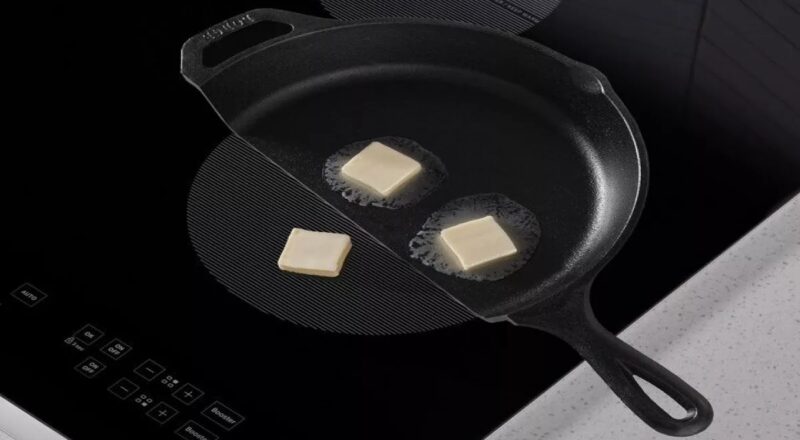Cooking with cast iron has become increasingly popular among home chefs and professionals alike, known for its durability and even heat distribution. However, when it comes to using cast iron on an induction cooktop, understanding the energy usage is crucial for achieving efficiency and effectiveness.
Induction cooking is celebrated for its quick heating and energy efficiency, but how does cast iron fit into this equation? In this article, we will explore the dynamics of using cast iron on induction and delve into the energy usage considerations that come with it.

How Does Induction Cooking Work?
Before diving into the specifics of cast iron, it is essential to understand the basics of induction cooking. Induction cooktops use electromagnetic fields to directly heat pans. This method is different from traditional gas or electric stoves, which heat indirectly.
Induction and Energy Efficiency
Induction stoves are known for their energy efficiency. They only heat the cookware, thus minimizing energy wastage. However, the type of cookware can impact the overall efficiency.
Advantages of Using Cast Iron on Induction
Cast iron is a favored choice for many professional kitchens due to its heat retention properties. When used on an induction cooktop, it can offer several benefits:
Even Heat Distribution
One of the standout features of cast iron is its ability to distribute heat evenly. This quality ensures that food is cooked uniformly, reducing the chances of uneven browning.
Excellent Heat Retention
Cast iron retains heat exceptionally well, which is ideal for dishes that require consistent temperatures, even after the heat source is reduced.
Challenges of Cast Iron on Induction
While there are advantages, using cast iron on induction also presents some challenges that need to be addressed:
Slow Preheating Times
Compared to other materials, cast iron takes longer to heat up. This can initially affect energy usage as more time is needed to reach the desired cooking temperature.
Potential for Cold Spots
If the cast iron pan does not entirely cover the induction ring, it may lead to cold spots, which can affect cooking performance.
Optimizing Energy Usage with Cast Iron
To maximize the efficiency of using cast iron on induction, consider the following tips:
Preheat Gradually
Allow the cast iron to heat up gradually. This approach helps in maintaining energy efficiency while ensuring the pan is adequately heated.
Matching Pan Size
Ensure that your cast iron pan matches the size of the induction ring. This practice helps prevent inefficient energy usage and uneven heating.
Comparing Cast Iron to Other Cookware
When considering energy usage, it is helpful to compare cast iron with other types of cookware often used on induction:
Stainless Steel
While stainless steel heats quicker than cast iron, it does not retain heat as well, potentially requiring more energy for prolonged cooking.
Copper
Copper is excellent for quick, even heating but requires a layer of magnetic material to work with induction, impacting its energy efficiency.
Environmental Impact of Using Cast Iron
Using cast iron on induction cooktops can also have an environmental angle. By optimizing energy usage, cooks can contribute to reduced energy consumption, promoting sustainability.
Durability and Longevity
Cast iron is incredibly durable, reducing the need for frequent replacements and thus minimizing waste.
Recyclability
Cast iron is recyclable, which further enhances its environmental benefits compared to some other materials.
Expert Opinions on Cast Iron Energy Usage
Experts in the field often emphasize the nuanced relationship between cast iron and induction cooking. While it may require initial adjustments, the long-term benefits in terms of heat retention and environmental impact are noteworthy.
Professional Chefs
Many chefs appreciate cast iron for its heat retention, which can be particularly advantageous in professional kitchen settings.
Energy Experts
Energy experts also highlight that proper use of cast iron can align well with sustainable cooking practices.

FAQ Section
Does cast iron work well on induction cooktops?
Yes, cast iron works effectively on induction cooktops, provided the pan is well-suited to the size of the induction ring to ensure even heating.
Is cast iron energy efficient on induction?
While initially slower to heat, cast irons heat retention can contribute to energy efficiency over longer cooking periods.
What are the environmental benefits of using cast iron?
Cast iron is durable and recyclable, making it a sustainable choice in the kitchen.
For more insights on how induction cooking works with various cookware, you can visit Homes and Gardens.
This article contains affiliate links. We may earn a commission at no extra cost to you.

